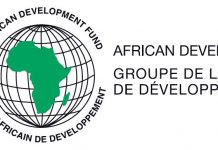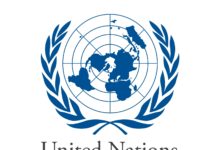Global development financiers attending this year’s Organisation of Petroleum Exporting Countries (OPEC) Fund’s forum in Vienna, Austria, have pledged a strong commitment to remodel their investments to support green projects at scale.
The delegates, representing multilateral development banks and intergovernmental institutions, said business and political leaders must do more to stimulate capital deployment from the private sector.
Muhammad Al Jasser, chairman of the Islamic Development Bank Group, cited the Desert-to-Power (https://apo-opa.info/3FZYhpe) flagship renewable energy initiative led by the African Development Bank as “a great pioneering project.”
Al Jasser said the Islamic Development Bank is fully committed to financing green projects while balancing it with support for poverty reduction.
African Development Bank Group president Akinwumi Adesina called for new ways of project preparation and de-risking of projects to mobilise private sector investment at scale for sustainable development.
“We’ve got where the private sector is. We’ve got US$ 145 trillion of assets under management (and) by 2026 it’s going to be there… but the issue here is that we need new ways of aggregation to prepare the projects, to de-risk the projects and lower the transaction cost for those deploying capital,” Adesina reiterated.
The African Development Bank chief cited the Africa Investment Forum (https://www.
“It [the Africa Investment Forum] has become today the premier investment platform to do anything on investment in Africa, and in the last four years, we have been able to leverage about US$ 142 billion of investment interest into energy, water and sanitation, infrastructure, and transport corridors,” Adesina said.
He added that the African Development Bank and its partners are also creating opportunities for the private sector to invest in agriculture through special agro-industrial processing zones, which are being established across the continent.
Adesina said: “We are bringing in private capital into agriculture that will create opportunities for the private sector to go into rural areas close to where the farmers are producing – they can buy food, they can process food, they can package food, they can export food and have a greater competitiveness for various value chains.”
Rémy Rioux, CEO of Agence Française de Développement, called for a consensus in redefining development finance.
He said: “We need a new narrative. We need to work on a framework to finance what nobody is financing – the most vulnerable communities. This is our core mandate, and we must be allowed to allocate part of the precious concessional resources to mobilize, to lower emissions, to go the private way.”
Rioux said he looked forward to this week’s summit for a New Global Financing Pact to pin down a roadmap for easing the debt burden of low-income countries, while freeing up more funds for climate financing.
The Paris discussions will include the reallocation of International Monetary Fund special drawings rights (SDRs), Rioux said, acknowledging Adesina’s advocacy for the African Development Bank to be the conduit for redeploying the SDRs to Africa.
Frannie Leautier, expert chair of the Independent Review of Multilateral Development Banks’ Capital Adequacy Frameworks, outlined areas that her committee identified to maximize the impact of their capital.
She cited these areas as including recognizing callable capital as a powerful instrument of shareholders’ commitment; adopting more financial innovations in capital deployment; enhancing dialogue with credit agencies; and undertaking reforms to enhance transparency.
Prime Minister Lotay Tshering of Bhutan paid tribute to multilateral development banks for their support, particularly for vulnerable and low-income countries. He said: “You are the group of people working beyond avenues for profit. You embrace countries beyond that of your own.”
OPEC Fund Director-General Abdulhamid Alkhalifa highlighted the need for development financiers to remodel their operations to attract other resources to close the huge finance gap.
Click here (https://apo-opa.info/3JmsYqk) for photos.


















